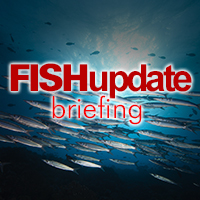Fishupdate briefing Friday February 23rd

ENERGY WORLD FIRST FOR NEW WELLBOAT
THE Norwegian company Nordlaks is building the world\’s first wellboat powered by Liquid Natural Gas (LNG) propulsion and a battery pack. It says the development will provide significant environmental and climate benefits. Emissions of Co2 are reduced by 30 per cent and by 90 per cent for NoX (nitrogen oxide). The wellboat will carry live salmon and trout for Nordlaks. The project is being developed by NSK Ship Design in Harstad, according to a press release. Delivery is expected in February 2020.
PORTUGAL TOLD TO TOE EU LINE ON FISHING
THE European Commission has warned the Portuguese Government that it must respect the exclusive mandate of the EU when it comes to fishery and marine biological resources. The move follows representations made by Portugal to the North East Atlantic Fisheries Commission (NEAFC) and the International Council for the Exploration of the Sea (ICES) involving measures to address the impacts of bottom fishing activities on vulnerable marine ecosystems. The Commission said the approach breached EU law and has told Portugal that if it does not reply satisfactorily within two months, the it may refer the matter to the EU Court of Justice.
SEAFOOD PROCESSORS CALL FOR AIRPORT EXPANSION
A GROUP of seafood buyers in Halifax, Nova Scotia have urged local politicians to increase the cargo handling capacity at the city\’s Stanfield International Airport to meet growing demand for the province\’s seafood products. Leo Muise, executive director of the Nova Scotia Seafood Alliance, told a legislature committee that air was the only practical method of exporting fish, but because of restricted capacity some of the Alliance members were having to use other means to get their product to Asia . He said the airport was unable to handle amount of live lobsters needed for the recent Chinese New Year.
HUGE INCREASE IN FISH WITH PLASTIC
RESEARCH by scientists at the National University of Ireland (NUI) in Galway, has found that 73 per cent of the deep fish in the North West Atlantic were found to have ingested plastic particles, one of the reported highest frequencies in fish anywhere in the world. . The research was conducted during a transatlantic crossing by the Celtic Explorer research vessel. During the journey, scientists recovered dead deep-sea fish by trawling depths of up to 600 metres in the northwest Atlantic Ocean. Upon examination they found that a very high proportion contained small plastic fragments of the type used in personal care products and clothing.

